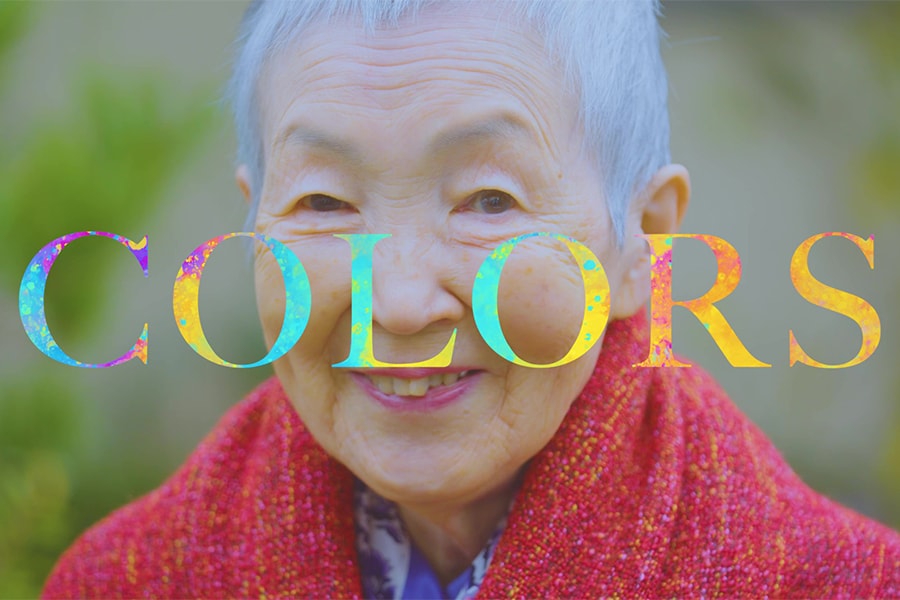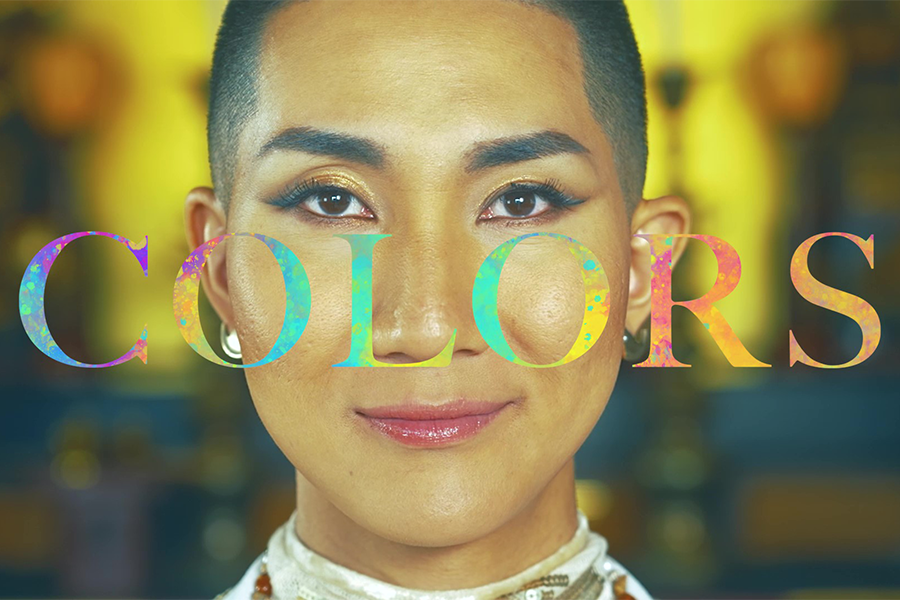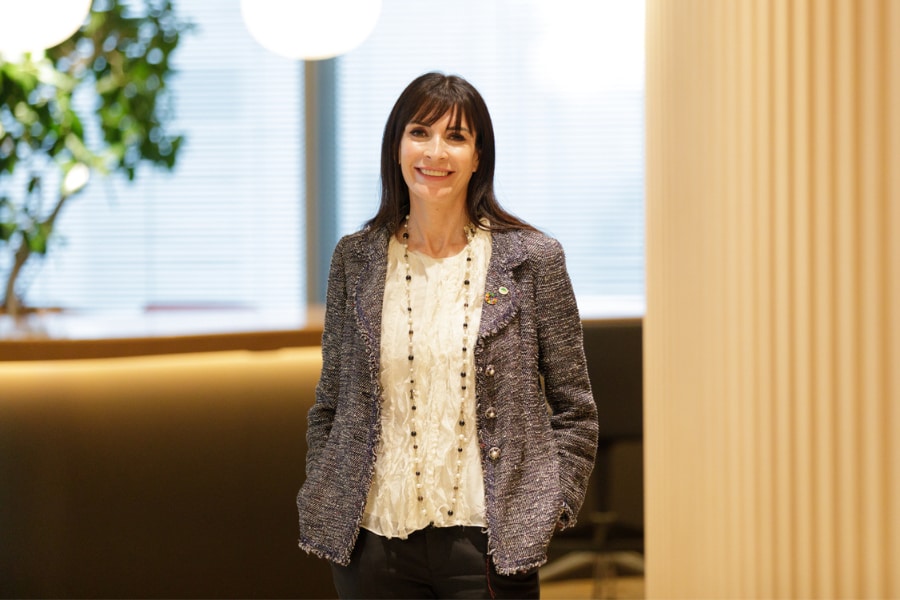Japan’s first university head from Africa on Multiculturalism and Creating an Inclusive Workplace
“When I first came to Japan, a popular fashion trend among high school girls, in which they darkly tanned their skin, was ganguro. I didn't know who the real black person was!” says the first African-born university president in Japan, Professor Oussouby SACKO, aged 56, of Kyoto Seika University, who speaks Japanese with a distinct Kansai dialect(Japanese dialect that originated in the Kansai region and commonly described as a casual sounding dialect) and who has lived in Japan for more than 30 years.
As the number of foreign workers increases across the world, there is a need to create inclusive workplaces. Therefore, this is an interview with Professor SACKO on the topic of how to create an environment in which people with diverse cultural backgrounds can work together.
An Asia that was completely different than imagined
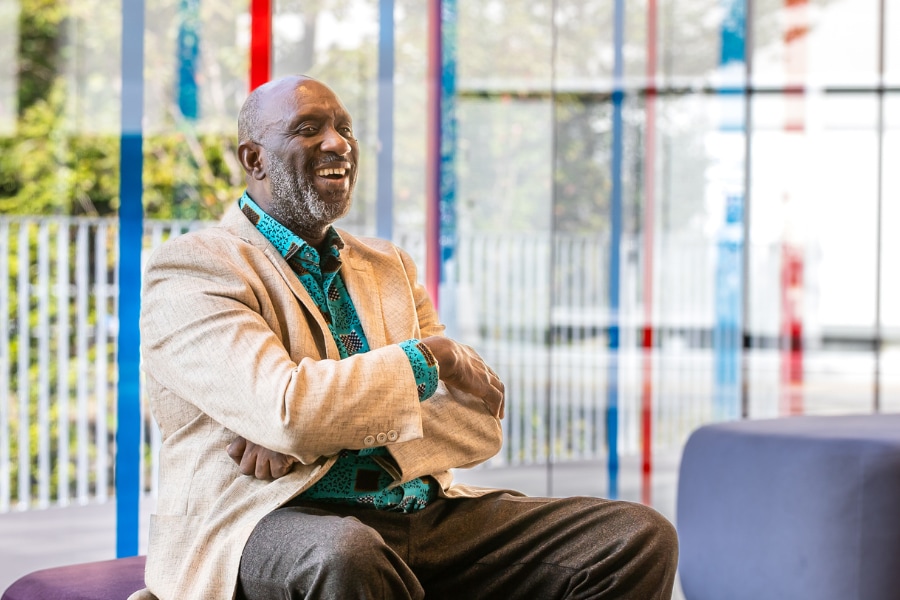
-- You have lived in Japan for more than 30 years. Why did you come to Japan at first?
Oussouby SACKO: I spent my childhood in Bamako, the capital of Mali, and its suburbs. After graduating from high school, I received a scholarship that enabled me to study abroad, and the destination that was assigned to me by the country's Ministry of Education was China.
The destination took me by total surprise, so I was like, "Why Asia?” But I decided to dive in head first and go. During my stay in China, I traveled to Japan once, which sparked my interest in Japan, and I decided to try living in Japan after my time in China was done.
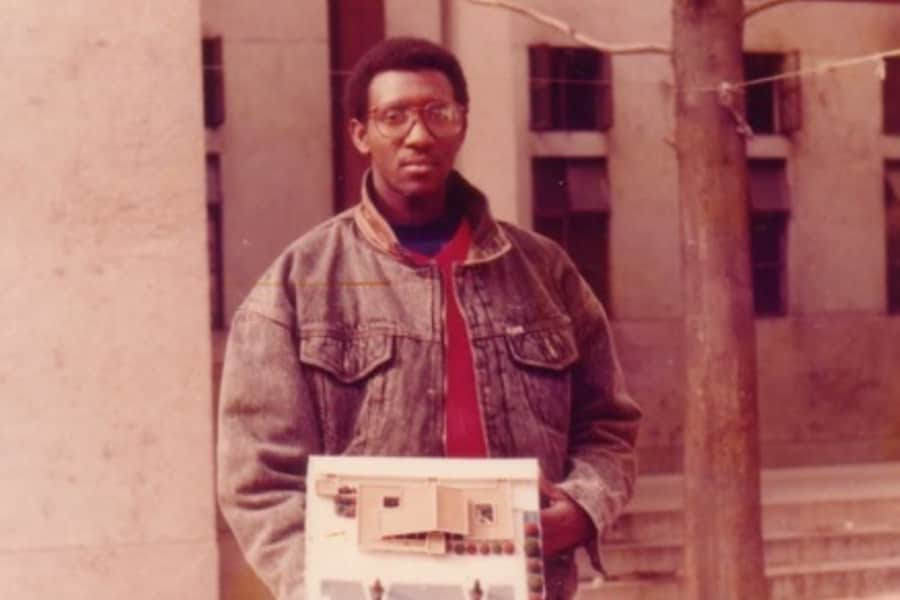
-- What was your impression of Asia when you were in Mali? And what made you decide to live in Japan?
SACKO: My impression of Asia was basically that of kung fu movies. So I imagined the world of such movies in China, but when I went there, I found that everyone was wearing Mao suits, riding bicycles, and eating a Chinese bread called mantou. I thought, "This is totally different from the movies!"
On the other hand, my image of Japan was of electrical appliances. The Japanese students I met in China actually had small, high-performance speakers, and their rooms were clean and tidy, giving me the impression that they were like robots. But when I traveled to Japan, it was different again.
When I stayed at my friend's house, his father wore only long underwear, and his mother was drinking beer, watching absurd TV, and laughing hysterically. I realized that Japan also has this kind of carefree and cheerful society, and that is how I became interested in Japan and wanted to live here.
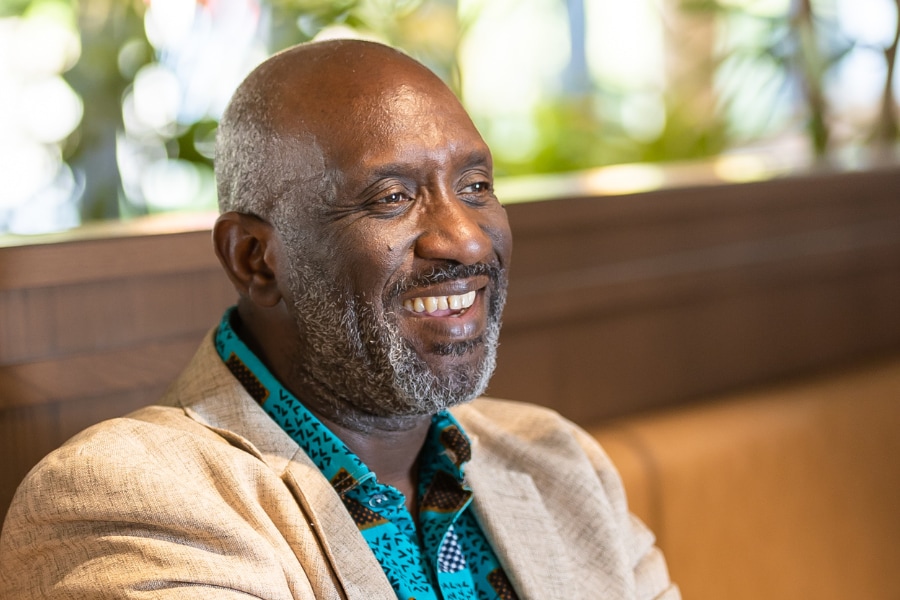
-- It comes across that China and Japan were completely different worlds for you. What did you feel on a day-to-day basis while living in such an environment?
SACKO: At university in China, someone asked me, "Do you live in a tree in Africa?” I was also asked “Where is Mali?" I learned that my country was completely unknown in China. I was shocked. But then, for the first time, I also understood how we were viewed by the world, and I was made intensely aware of the fact that I am African and a black person.
When I am in that position, I feel that I do not want to lose, and I also want to emphasize my strength. But I soon learned that it is important for me to first accept the other person. Then I came to understand that I, too, could be accepted.
The way diversity is perceived: Still not quite right
-- After coming to Japan, you started to research spatial anthropology at Kyoto University graduate school, and then you started to teach at Kyoto Seika University. How do you see the situation in Japan in terms of communication with people from different cultures?
SACKO: When I first came to Japan, a fashion trend called ganguro was very popular among high school girls. I thought to myself, "Why do they paint their faces so black? I don't know who the real black person is!” But I did not feel that black people were accepted. I felt that Japan is taking in things from other cultures and interpreting them in their own way, but Japanese people are not open to people from other cultures.
Over the past 30 years, however, the number of foreign nationals in Japan has increased a great deal, and I feel that an air of acceptance of foreign nationals is spreading. There is now a shared recognition of the importance of diversity. However, I still feel uncomfortable with the way diversity is perceived in Japan.
In Japan, there is a tendency to frame foreign nationals and people in weak positions as minorities, and to think that it is diversity if we, the majority, accept them. I don’t think that is right.
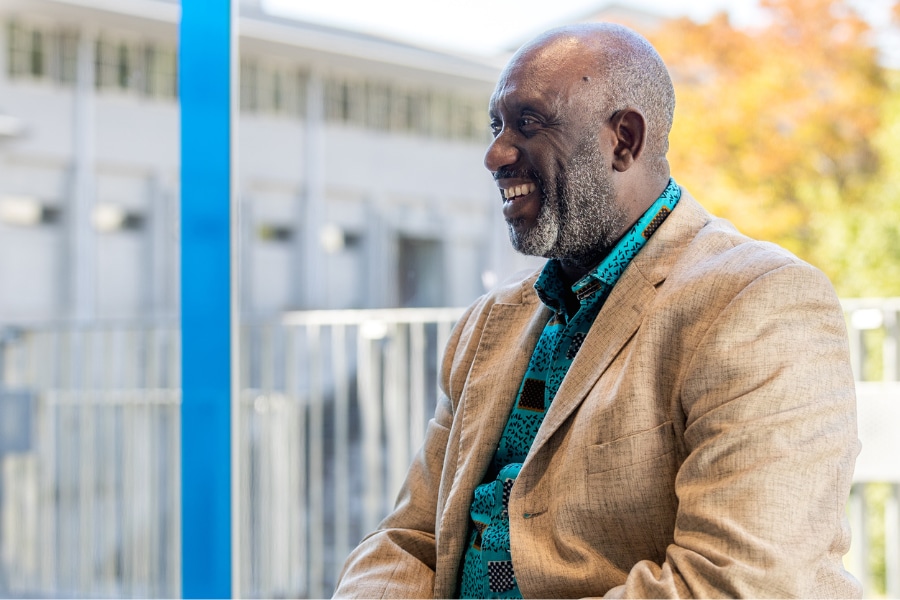
-- So you’re saying that the mindset of the majority accepting the minority is wrong?
SACKO: Yes. What is important is to change the mindset of the majority. In other words, those that are supposed to be in the majority need to rethink what it means to be the majority. Even those that are in the majority are not the majority.
In Japan, for example, because of strong peer pressure, even those that are in the majority are in part abandoning themselves in order to behave in a way that is expected of them as the majority. Looking at my students, all the Kansai kids think that when they speak, they have to make a punchline to make the other students laugh. They say it’s because they are Kansai people and that’s what Kansai people do. That’s restrictive, isn't it? In fact, it may be erasing their individuality.
Even those that are in the majority may actually be in the minority. If each person realizes this and is conscious of the importance of living with his or her own individuality, we can create a more-diverse society. I think that is true diversity. I think that, if we do that, we will no longer think in terms of other people being the minority and that we, the majority, will accept them. I think that is something Japanese people need to think about more.
The importance of respecting and having dialogue with others
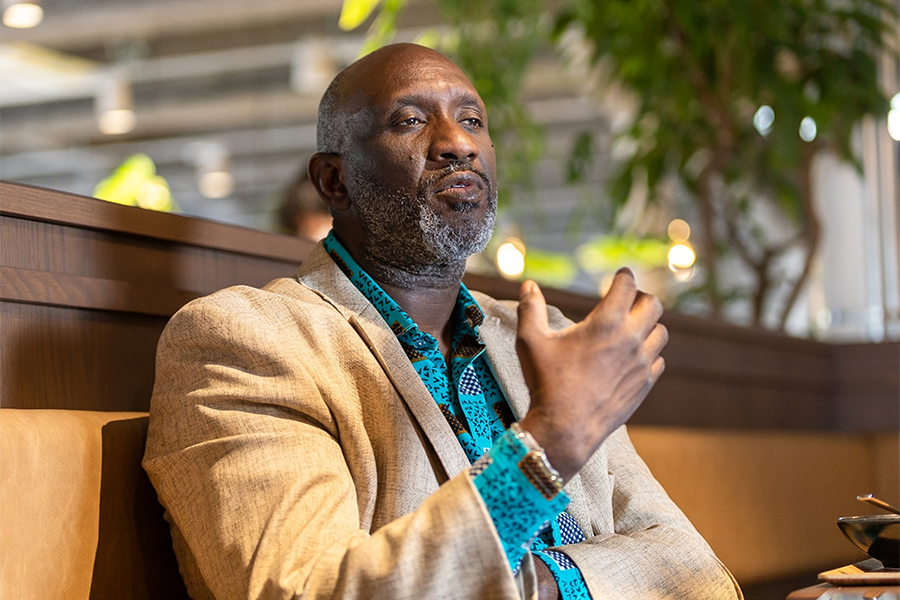
-- As president, you were in a position to bring together students and staff from diverse cultural backgrounds. In such a workplace, awareness of the need to create an inclusive environment seems particularly important. What is important for creating such an environment at a company and at other organizations?
SACKO: What I personally try to bear in mind is to be in tune with the other person when communicating. What is obvious to me may not be obvious to the other person. This is especially true in different cultures. I believe it is important to always be aware of the difference in values between you and the other person; in other words, the borderline between both parties, and to communicate while respecting the other person's space.
Moreover, Japanese people do not easily express their thoughts in words. Even when we have a chance to have a discussion, I don’t know if we’re having an adequate discussion. If it were between Japanese people, they might understand each other implicitly, but people that come from other cultures do not understand.
Therefore, that is why I believe that dialogue is essential. We should not assume from the outset that the other person thinks this way, but rather, we should engage in dialogue and confront each other with our thoughts and feelings. I think we need to find a way to come to terms with each other.
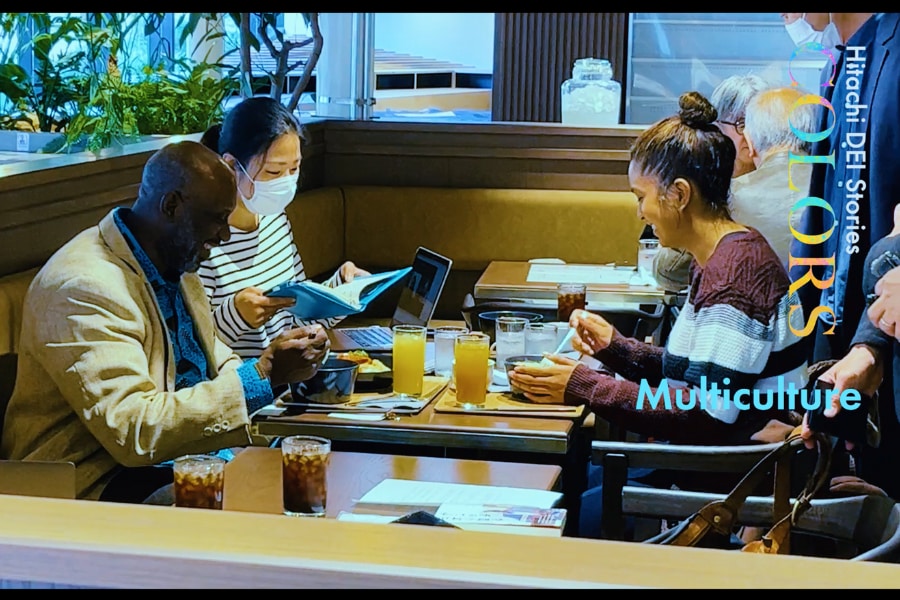
As for what to do in the workplace to achieve this, I believe it is important to create lots of informal events. When making decisions, it is better to do so in an informal environment, such as over lunch.
In such an environment, you can see things about the person that you normally cannot see, you become more interested in the other person, and you are more likely to ask and talk about things that you would not say in a formal setting. When you understand each other better and build a relationship, you can suddenly find yourself asking, "Professor SACKO, what do you think about this?”
It is important to create an atmosphere in which such occasions can spontaneously arise regularly. People that want to consult with me can come to my office and talk over a meal. I believe that such an environment is ideal.
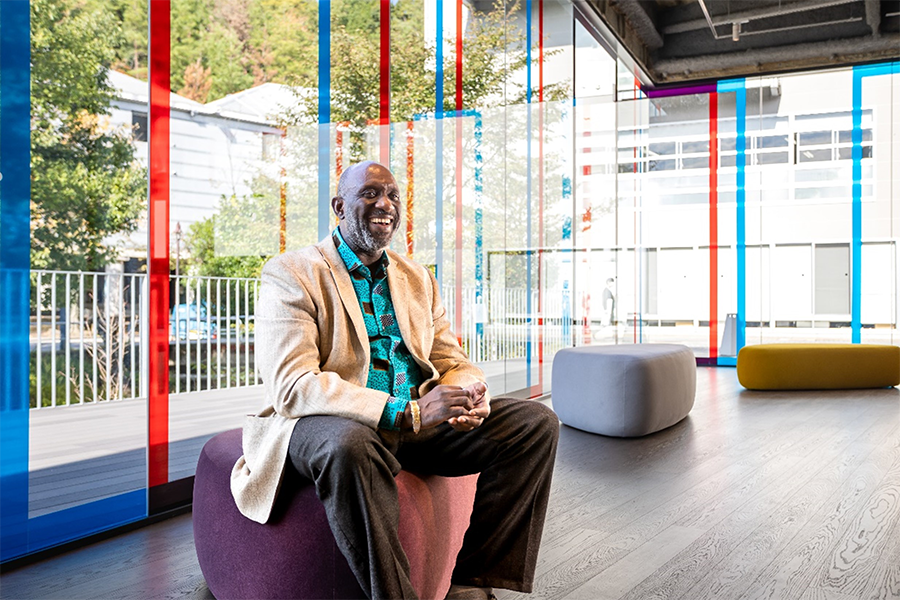
-- Division is increasing all over the world. Things that people are seeing differ, making constructive dialogue difficult. What should people be conscious of in such times?
SACKO: It is about respecting the other person as a human being. That is the most important thing. We must have the tolerance to accept each other's culture and way of thinking, without creating a hierarchy, such as "that person is the strongest" or "I am better than you.”
Even in the workplace, it is important to create an environment where everyone involved can participate in discussions and make decisions.
More and more people from foreign countries and cultures are expected to enter societies that they weren’t born into in the future. In such a future, I would like to create a society where everyone can respect and approach each other as good friends that will work together to build a society. To this end, I would like to continue to do what I can as an example to embody diversity.

